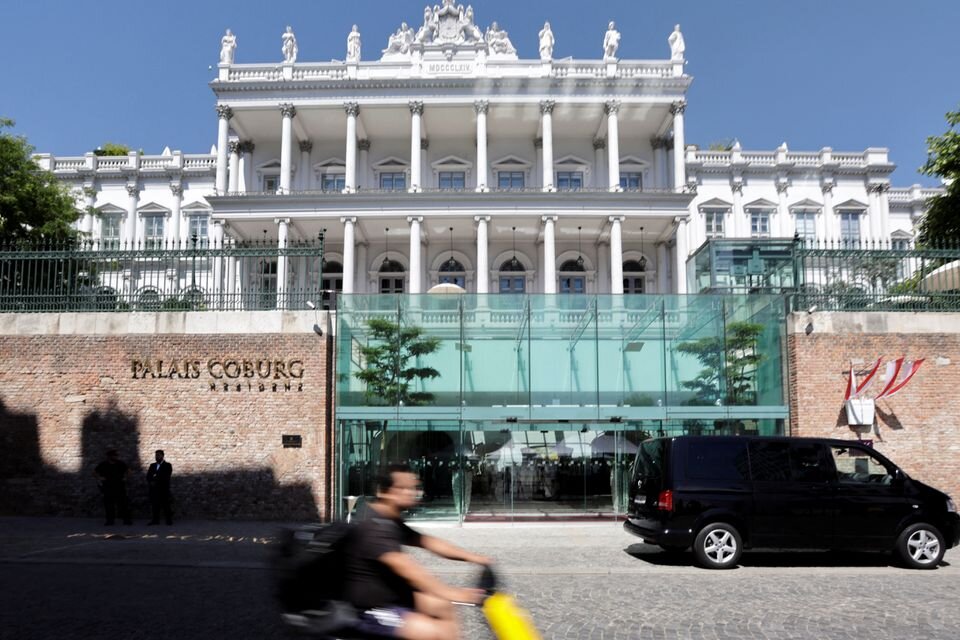Analyst says U.S. must make definitive choice

TEHRAN— The Islamic Republic of Iran has dynamically sought to preserve the 2015 nuclear deal and has participated in the Vienna talks for the sake of the Iranian nation's economic interests, according to Iranian political analyst Mohsen Pakaeen.
The European Union's High Representative for Foreign Affairs and Security Policy, Josep Borrell, has said the talks in Vienna, Austria, have come to a close, and the capitals of the parties involved in the talks should make decisions based on the most recent text presented by him.
Pakaeen said the decision of Iran as a signatory to the nuclear deal is completely clear, rational, and based on the provisions of the Joint Comprehensive Plan of Action (JCPOA). He said the Iranian negotiating team submitted its own points to the European side.
Whenever the other side abides by its obligations, the Islamic Republic will also comply with its promises, he said, noting that the U.S. should promise that all anti-Iran sanctions will be lifted and that they will provide the necessary guarantees to prevent international companies from hampering investment in Iran or interfering with economic exchanges with Iran.
If the U.S. shows political determination to comply with its duties under the JCPOA and lift anti-Iran sanctions, Tehran will adhere by its obligations and accept nuclear restrictions based on the JCPOA, he suggested.
The ball is in the United States’ court to make a definitive choice, remarked Pakaeen, Iran’s former ambassador to the Republic of Azerbaijan.
Regarding the launch of a new generation of advanced centrifuges in Iran, Pakaeen stated that the Islamic Republic's injection of gas into hundreds of centrifuges, particularly 500 IR6 centrifuges, was a prudent measure consistent with Iranian independence plans.
Iran was fully abiding by its duties under the JCPOA, but the Trump administration withdrew from the internationally recognized agreement, and the current Joe Biden administration has shown no readiness to relieve anti-Iran sanctions, he stated.
Despite the fact that Iran's nuclear-negotiating team acted rationally during the Vienna talks to pave the way for reviving the JCPOA and lifting anti-Iran sanctions, the U.S. maintained its bullying policy and imposed new sanctions on a number of Iranian companies and entities, according to the political expert.
He went on to explain that the Islamic Republic informed the International Atomic Energy Agency (IAEA) about its new plan to build new centrifuges, noting the Iranians adhere to IAEA norms and the Safeguards agreement.
The former diplomat went on to say that Iran is not seeking to produce nuclear bombs despite the fact that it has the capability.
All measures taken by Iran, including the injection of gas into centrifuges, are consistent with Tehran’s plan to use nuclear technology for civilian purposes, such as agriculture, health, industry and feeding nuclear power plants, he stated.
He added the Islamic Republic would not yield to Western pressure, saying that Iran has chosen the right path and will pursue its peaceful nuclear program.
After four days of intense negotiations in Vienna, negotiators from Iran, the United States, and Europe returned to their respective capitals for deliberations on a contentious text presented by Borrell, the JCPOA coordinator.
The Iranian negotiation delegation returned to Tehran on Monday after ending extensive talks on a number of contentious subjects that have long awaited a U.S. political decision. According to a senior Iranian foreign ministry official, the Islamic Republic of Iran expressed its views during the negotiations, and relative progress was made on some subjects.
Enrique Mora, the EU coordinator for the talks, provided some recommendations to all parties on the final day of negotiations. Iran provided an initial response, stating that a full response would be feasible only after a thorough assessment of the suggestions.
"Such matters require comprehensive investigation, and we will provide our final response to the facilitator of the Vienna talks and other parties," the Iranian official pointed out.
While certain problems remained unresolved, Borrell announced the end of negotiations, raising concerns in Tehran and elsewhere.
“What can be negotiated has been negotiated, and it’s now in a final text. However, behind every technical issue and every paragraph lies a political decision that needs to be taken in the capitals,” Borrell said on Twitter on Monday.
He added, “If these answers are positive, then we can sign this deal.”
Borrell did not name Iran, but Western media, citing diplomatic sources, backed Borrell's narrative that the text supplied by the EU was non-negotiable and that Iran had no choice but to accept it. This comes after Tehran informed its negotiation partners that it needed to thoroughly review the text. In other words, Iran does not consider the text offered by the EU to be definitive and final.
According to political experts, Borrell's presentation of the final text may be intended to put pressure on Iran to agree to what has been discussed thus far. The fast approval of Borrell's text by the United States has prompted some pundits to conclude that the text was already coordinated with the United States.
From another perspective, the EU text is contentious. According to Nour News, Borrell's text was an "attempt to create a special status and function" for the European Union in the Vienna discussions, which "was never authorized by the two parties of the negotiations." In other words, the EU's sole responsibility is to coordinate the talks, not to make proposals.
The EU appears to have attempted to fill the void left by the absence of E3 negotiators in the most recent round of talks.
